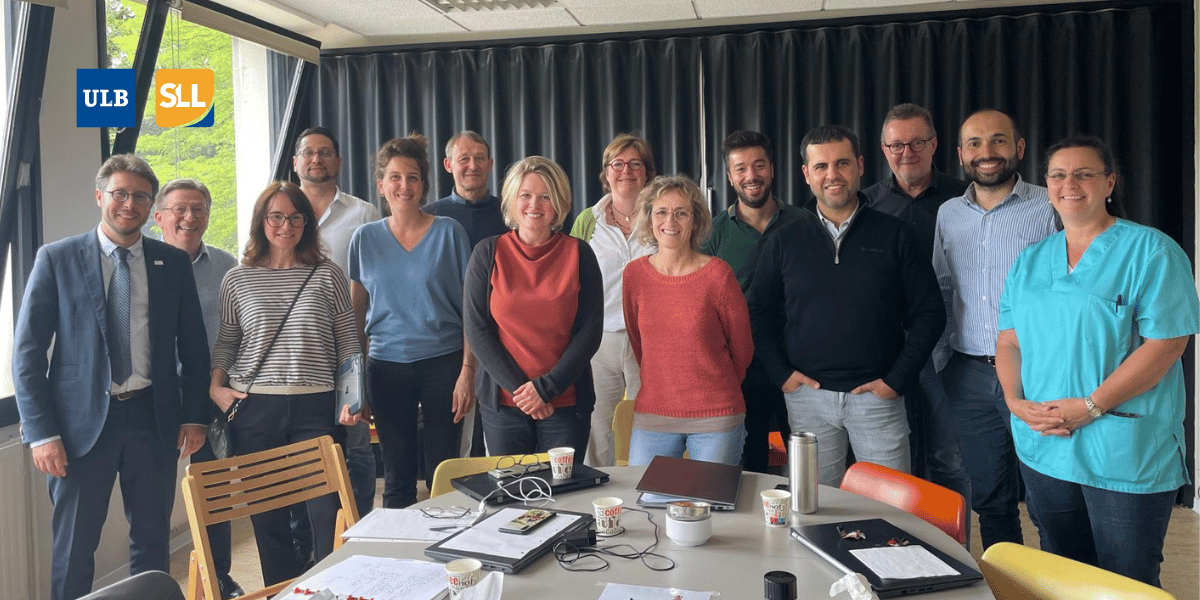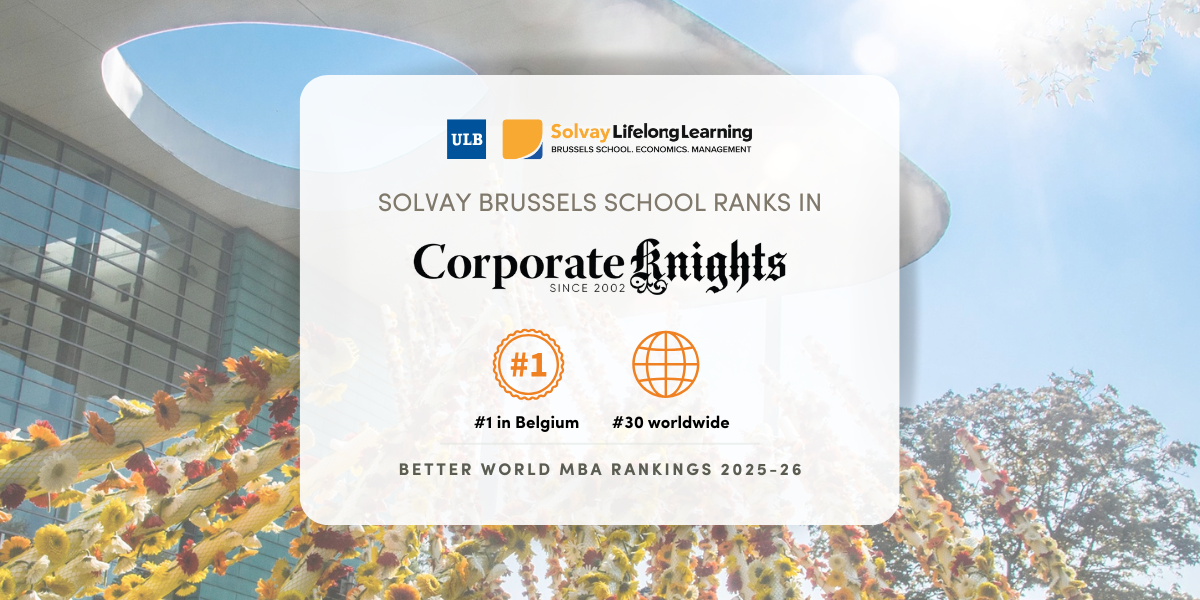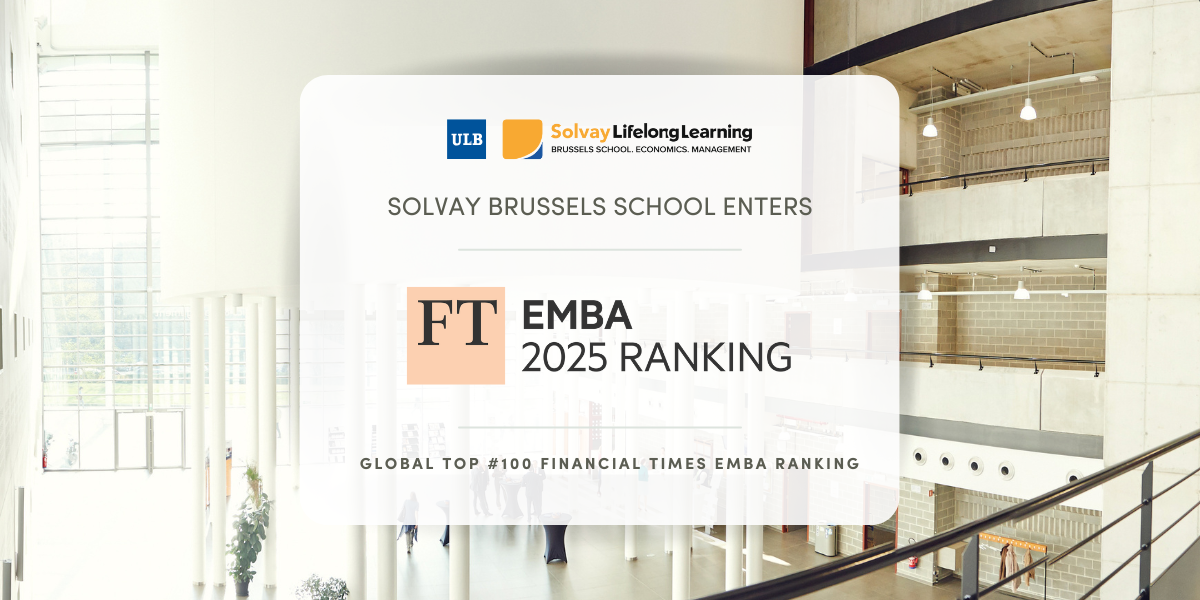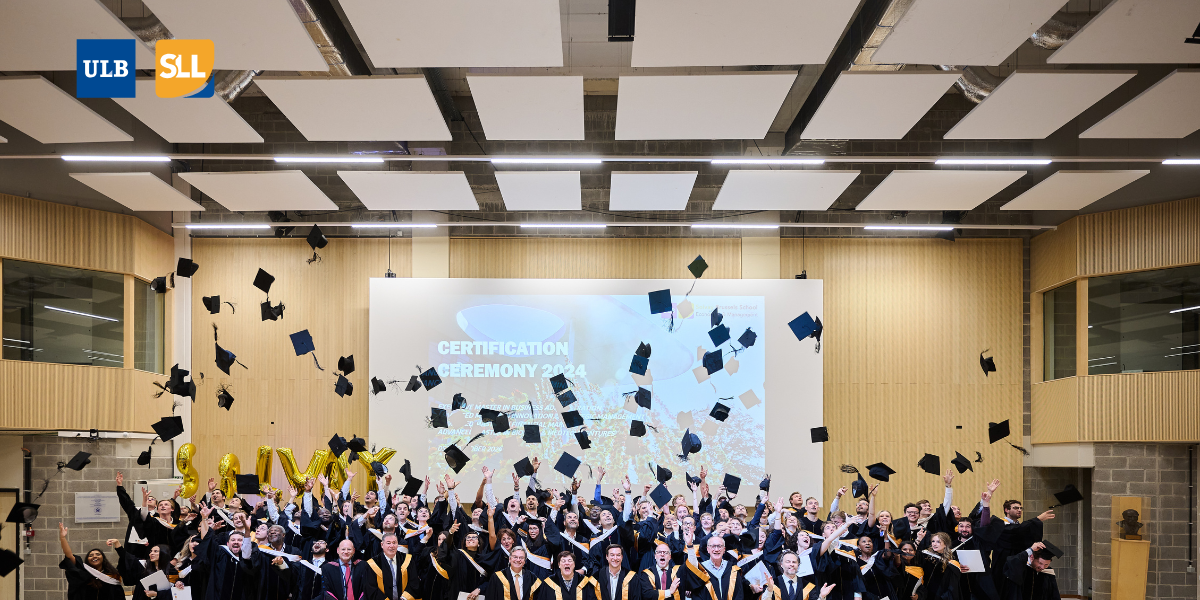Learn more about us.
Executive MBA Advisory Lab: Insights From the IRAHM Case Study
Zübeyir Atmaca, Bahadir Ceyhan and Aymen Khalfaoui |Author
Executive MBA participants, class of 2022-24.

Stay connected
Never miss the latest insights, blogs and news. Subscribe to our newsletter.
The Executive MBA Advisory Lab at Solvay Brussels School offers a unique platform for students to apply their academic knowledge to real-world business challenges. This programme, led by course instructor Laurent Gheeraert together with the coach Caroline Braeken, connects students with corporate partners, fostering a practical, learner-centric approach.
The main objectives of the Advisory Lab are to:
- manage and satisfy a client
- analyse corporate problems using defined methodologies
- propose concrete solutions
- manage executive communication
- conduct management projects
- organise teamwork
- and interact professionally with project stakeholders.
Project Description
Our partner for this project was IRAHM, a non-profit organisation specialising in providing comprehensive care and support for children with mobility disabilities. The project's scope involved conducting a strategic benchmarking analysis to identify areas of improvement and best practices that could enhance IRAHM's service delivery and organisational efficiency.
The key goals of the project were to:
- Analyse IRAHM's current organisation, practices and service delivery models.
- Benchmark these against other leading non-profit organisations in the same sector.
- Provide strategic recommendations to improve IRAHM's overall performance.
The deliverables included a detailed benchmarking report, strategic recommendations, and a final presentation to IRAHM's management team.
Our team comprised three members: Aymen Khalfaoui, Bahadir Ceyhan, and Zübeyir Atmaca. Each member brought diverse skills and backgrounds, contributing significantly to the project's success. Aymen and Bahadir with their strong background in quantitative analysis, led the data collection and analysis phase. Zübeyir, with his experience in strategic planning and organisational management, spearheaded the supervision of the activities, organisation of the workshops and visits with others institutions. Collaborating as a team on the strategic recommendations and action plan enabled us to develop a more comprehensive and thorough plan.
Academic Insights
Theoretical Frameworks
Several academic theories and frameworks were pivotal in guiding our project. The design thinking process helped in identifying key capabilities within IRAHM's operations that could benefit from strategic improvements. Benchmarking methodology, based on Robert C. Camp's model, provided a structured approach to comparing IRAHM's performance with other organisations.
Additionally, Dr. Robert Kaplan & Dr. David Norton’s Balanced Scorecard approach helped in connecting strategic recommendations with IRAHM’s mission and vision, improving communication, focusing on long-term goals, and supporting data-driven decision-making that could benefit from strategic improvements.
Application of Knowledge
We applied these academic concepts systematically to address the project challenges.
In the first phase, in order to narrow down and understand the areas to benchmark, we organised a Design Thinking workshop together with Namahn. As a result of this workshop, we identified four core capabilities to benchmark:
- integrated multidisciplinary approach to care;
- organisational structure and staff management;
- communication within the institution;
- and interaction with families.
In the second phase, the benchmarking process involved seven key steps:
- defining the scope;
- selecting benchmarking partners;
- identifying capabilities;
- defining criteria;
- gathering data;
- analysing and comparing;
- and providing recommendations.
We conducted 32 qualitative and quantitative surveys organised using scientific methods and interviewed with 18 different people from different levels of the organisations. This method allowed us to gather comprehensive data from five benchmarked institutions.
Challenges and Solutions
One of the significant challenges we faced at first was to identify the strategic areas to benchmark. We addressed this challenge by organising a Design Thinking workshop with a wide attendance of IRAHM employees from all levels.
Another challenge was aligning the diverse operational models of the benchmarked institutions with IRAHM's context and understand the practices. To overcome this, we conducted detailed qualitative interviews and quantitative surveys, ensuring we captured both broad trends and specific insights.
One more challenge was ensuring the recommendations were actionable and relevant. We addressed this by involving IRAHM's management in regular feedback sessions, refining our recommendations based on their inputs.
Insights
Sector Analysis
The sector analysis revealed that many institutions in Belgium and abroad have different services and approaches to specialised care services from involvement of music to outdoor activities and a shift towards more inclusive care models. The benchmarking highlighted that institutions with a strong multidisciplinary approach and effective internal communication who are more inclusive tend to perform better in terms of service delivery and satisfaction.
Strategic Recommendations
Our strategic recommendations to IRAHM included:
- Refining roles and responsibilities that involves formalising job descriptions to ensure clarity and alignment.
- Enhancing communication tools which is implementing a central communication platform and regular interdisciplinary meetings.
- Strengthening family engagement by appointing a family relationship facilitator and organising "open door" family days.
- Leveraging digital tools utilising platforms like AIRMES and MDH-PPH to centralise patient information and improve coordination.
Impact and Results
The potential impact of these recommendations is significant. Improved role clarity and communication can enhance staff efficiency and morale, leading to better service delivery. Increased family engagement can build trust and support networks, improving overall client satisfaction. Utilising digital tools can streamline operations and facilitate better care planning and delivery.
Personal Development
Skills Acquired
This project provided invaluable opportunities for personal and professional growth. We developed skills in leadership, teamwork, problem-solving, data analysis and executive communication. The Lab instructor, Laurent Gheeraert and the coach Caroline Braeken, played an important role in coaching us through the project, offering insights and guidance that helped us navigate complex challenges and presentations.
Learning Experience
One standout learning experience was the importance of adaptability. As we engaged with different stakeholders, we learned to adjust our approaches based on changing project dynamics. Communication was also an important factor. Having regular meetings as a team internally, and with IRAHM, open and transparent communication helped with the engagement and progress of the project.
In conclusion, the EMBA Advisory Lab project with IRAHM was a transformative experience. It allowed us to apply theoretical knowledge to practical challenges, develop strategic insights, and grow both personally and professionally. The recommendations provided have the potential to significantly enhance IRAHM's strategy and operations as an organization, demonstrating the value of the Advisory Lab's hands-on approach to executive education.
Stay connected
Never miss the latest insights, blogs and news. Subscribe to our newsletter.
.png)
About the programme
EXECUTIVE MBA
Get the skills, confidence and network you need to lead the change with our globally ranked Executive MBA.
What other people like
Related blogs
Our Editorial Team brings you the latest in blog posts covering business, finance, sustainability, and programme insights from Solvay Lifelong Learning!
6/11/25
Our Editorial Team brings you the latest in blog posts covering business, finance, sustainability, and programme insights from Solvay Lifelong Learning!
13/10/25

Bruno is Senior Advisor and Ambassador for Innovation at EY and the Academic Director of the Solvay EMBA and Accelerated Management Programme. He is an expert in strategy, Entrepreneurship and Innovation.
9/04/25


